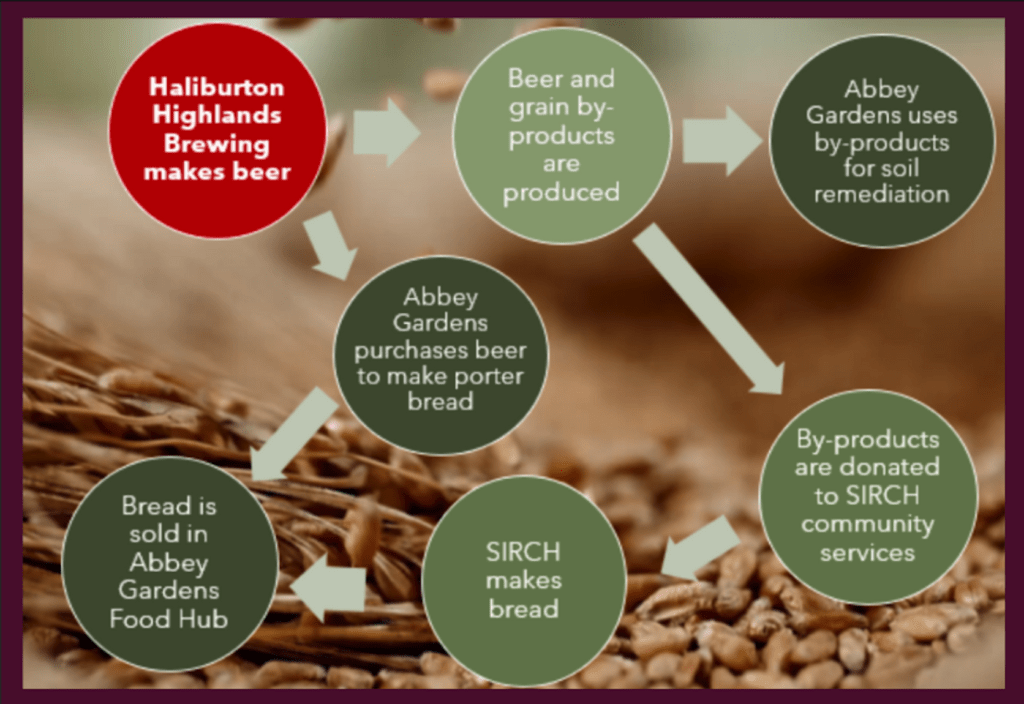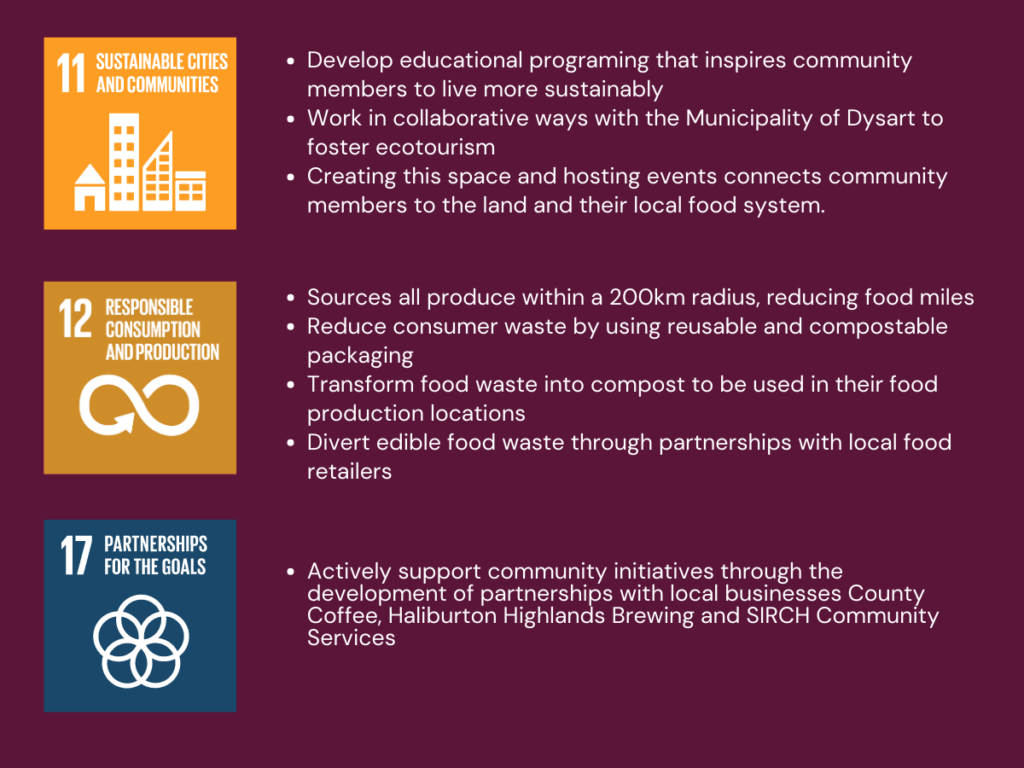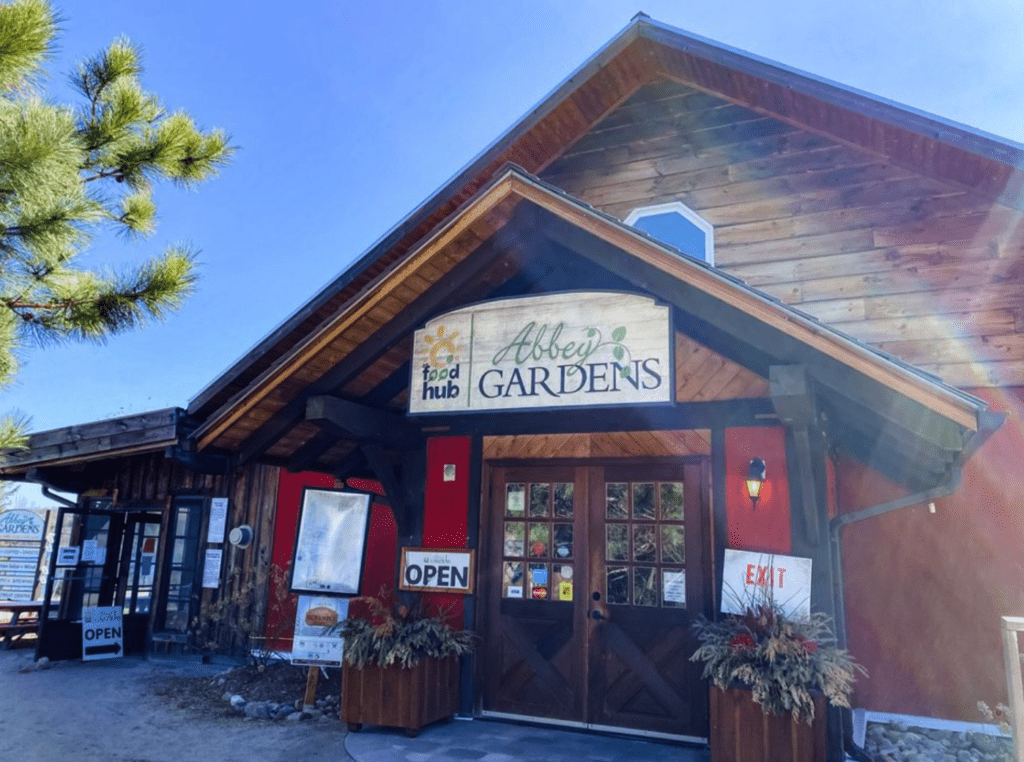Abbey Gardens: Community Centric Sustainability

This blog post is a collaborative effort with Harvest Impact, a project of 10C that plays a critical role in supporting Our Food Future in Guelph-Wellington by mobilizing community donations, philanthropy, and social finance investments. Harvest Impact’s mission is to create a connected ecosystem of change-makers and investors who are committed to driving positive social and environmental change. Through this collaboration, we hope to provide insights about enterprise level SDG impact to support the shared vision of building a sustainable and resilient food system for the region.
Abbey Gardens is a community hub and tourist destination for all. By revitalizing a gravel pit into a stunning green space, this social enterprise is dedicated to repurposing unused spaces and materials into valuable products. Discover how Abbey Gardens received support from the Circular Opportunity Innovation Launchpad (COIL) and Harvest Impact in their journey to building a sustainable community and make a positive impact towards the UN Sustainable Development Goals (SDGs).
Revitalizing an old gravel pit into a stunning green space, this organization truly knows what it means to live and operate sustainably. Located in Haliburton County, Abbey Gardens is home to a diverse range of attractions including a food hub, community garden, event space, equine workshop, beekeeping area, retail store, cafe, trail area, and 18 hole golf course.
Offering a wide range of products and services is an integral part of Abbey Garden’s business model and benefits both the organization and the community. Unlike non-profit organizations that may struggle during financial crises due to a decline in donations, social enterprises like Abbey Gardens are resilient because they generate revenue from multiple sources. This diversified revenue stream ensures a consistent cash flow, enabling the organization to provide services throughout the year.

Abbey Gardens offers a variety of educational workshops and day camps. These events aim to inspire and enable community members to embed sustainability into their everyday lives. To ensure the success of their sustainability initiatives, Abbey Gardens forms partnerships with local businesses, municipal governments and other non-profit organizations. These collaborations foster a system level approach to sustainability by promoting circularity throughout all participating partners. An example of this circular economy approach is the production of Abbey Gardens bread.

SDG Impact

Circular Business Tools and Services to Support Growth
Abbey Gardens was awarded a $20,000 COIL grant and $10,000 Harvest Impact loan to support their work related to sustainable community development. This allowed them to further several initiatives including the introduction of a successful community food festival which garnered $8,000 in sales and highlighted a variety of local businesses.. With over 700 attendees to the food festival, Abbey Gardens was able to educate visitors about the importance of living more sustainably while marketing their products.
This funding also allowed the organization to build critical partnerships, broadening their scope in the food waste recovery space. Through the partnership with a local grocery store Abbey Gardens was able to procure their near expiry produce and divert from landfill. By using traditionally undesirable produce as ingredients in their delicious products, the team proved that circularity and quality can co-exist.
To learn more, visit Abbey Gardens

